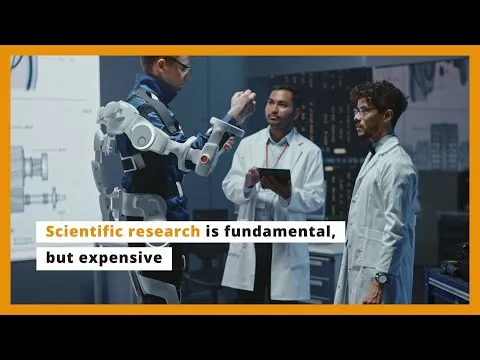
Better Ways to Fund Research
Scientific research is a very expensive, though fundamental activity. Nevertheless, we seldom pause to think whether how we can improve the way science is organized. Marco Ottaviani, professor of Economics at Bocconi, has won an ERC Advanced Grant worth €1.4m for a project, called Information Economics for Science, that aims to provide a more efficient framework for research, rethinking its rules but safeguarding researchers' freedom.
Scholars know all too well that our knowledge is still very limited. Uncertainty is the rule, not the exception. This makes it necessary to study the norms, both written and informal, that govern research, as current incentives might reward studies with little impact, thus diverting resources away from potentially lasting academic work. And if the market rewards innovations according to their estimated commercial value, non-profit organizations support research ex ante by applying various selection mechanisms and funding schemes. Both approaches are far from efficient. And, crucially, for all the growing volume of scientific papers, the economics of research is still little understood.
This is exactly the gap that Marco Ottaviani wants to bridge, with a wide-spanning project that aims first at understanding what really keeps research going and then at designing a framework that makes it more efficient. All of this, needless to say, without limiting academic freedom.
The project is divided into two parts. The first stage will look at the role of information in the operation of science. Researchers select questions to work on, choose sites for testing, and adjust samples when analyzing data. Editors select referees. Both parties then are influenced by existing incentives. How do these incentives impact on the knowledge that eventually reaches the public? And what is the advantage for the wider society? The answers can be outlined only after a comprehensive analysis of how these processes work.
The second part will try to redesign the system, drawing from the knowledge accrued in the first stage. By combining theory with empirical evidence, Ottaviani aims at issuing practical recommendations that will make the research mechanism both more efficient and more closely aligned with what our society needs.
As Marco Ottaviani himself explains, "the research proposed here aims at developing new economic tools for comparing information structures, designing mechanisms for evaluating projects and aggregating information, and analyzing the incentives for production of new knowledge. In addition to its intrinsic interest, science can become a fertile ground for pushing the research frontier in information economics."
ERC Advanced Grants are for active researchers with a track-record of significant research achievements in the last 10 years. Younger academics with 2-7 years of experience since completion of their PhD can apply for Starting Grants, while Consolidator Grants are for scientists with 7-12 years of experience.
Promoting Research That Fits the Needs of Our Society
